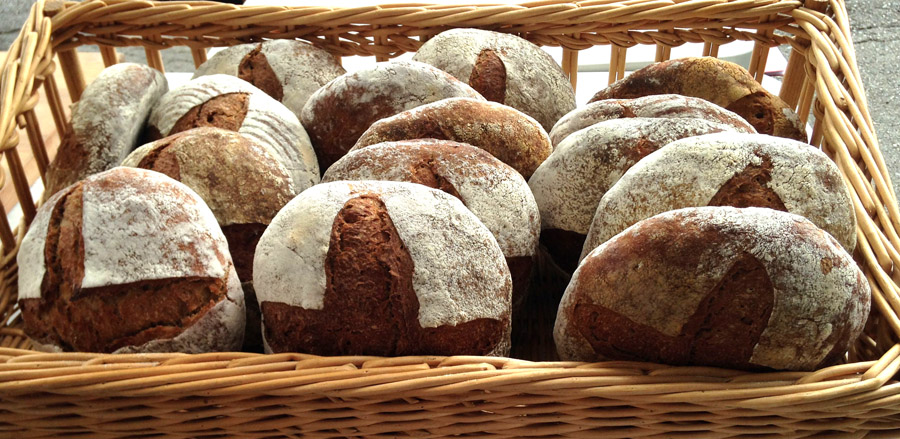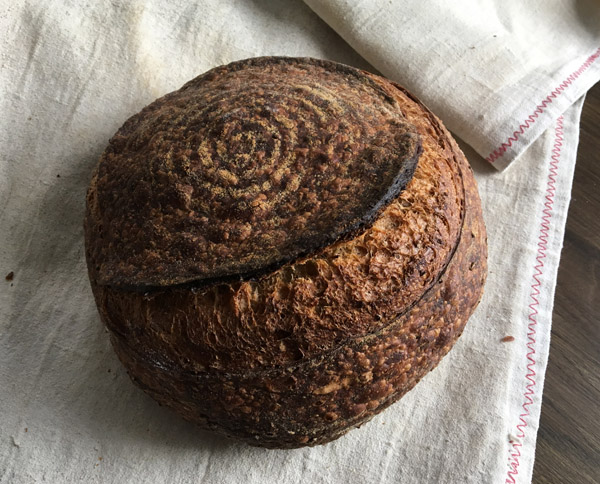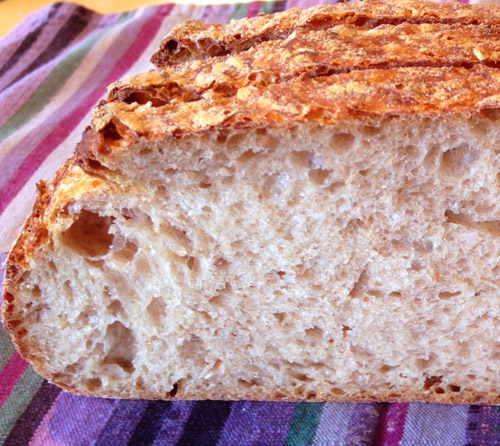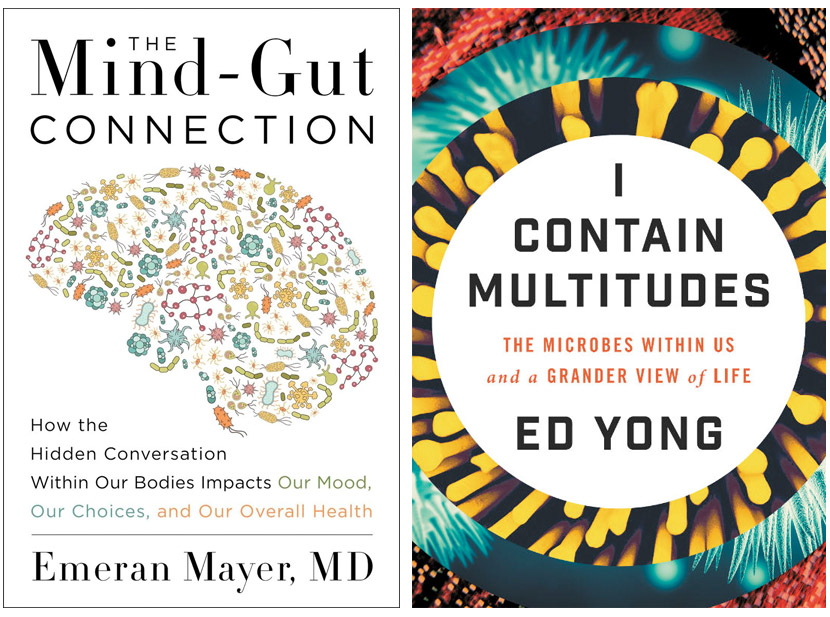Share This
Unless you’ve been living in a hole underground, you’re probably aware of all the attention being paid these days to the gut microbiome – the rich ecology of hard-working bacteria in our digestive tract. Although many of us grew up learning that “bacteria are the enemy,” it turns out that our human cells are outnumbered by helpful bacteria within us that play a big role in helping us digest our food and maintain good health.
If you want to treat your resident bacteria well (and trust me, you do!), feed them whole grains. That’s the conclusion from a recent U.S. clinical trial of 81 adults that Kelly featured in her blog last week. Even better, perhaps: feed them sourdough whole grains, made more delicious by beneficial bacteria from the slow-fermenting sourdough process.
Lately I’ve been enjoying an amazing sourdough whole wheat bread from my neighborhood bakery, made with locally-milled Maine Grains wheat. Intoxicated by the strong wheaty aroma that fills my kitchen when I bring home a fresh loaf, I got curious about whether sourdough bread like this had any special benefits for me and/or my gut microbes. Was I jumping to conclusions, or did the research back up my gut [pun intended] instinct?
The evidence was solid. Noodling around in PubMed (a research geek’s equivalent of a candy store), I found some very cool studies showing the advantages of sourdough bread produced with slow fermentation compared to typical commercial yeast breads:
- Sourdough offers all kinds of health benefits. According to Finnish researchers, traditional sourdough bread has a lower glycemic impact (keeps your blood sugar from spiking), makes some minerals and phytochemicals more bio-available, and as a bonus makes the grain’s fiber more accessible to your gut microbiota..
- Whole wheat sourdough is lower in acrylamides. There’s some concern that acrylamides, a type of chemical that can form in the browning process of some foods, may be harmful. Another study showed whole wheat sourdough bread to be naturally much lower in acrylamides than white yeast bread.
- Sourdough may be easier to digest. When a good sourdough is fermenting over several hours, beneficial bacteria are busily breaking down components in the grain, including gluten. This can make sourdough bread much easier for some people to digest, since there’s less “break-down” work left for their own bodies to do.
- Sourdough improves baking qualities and shelf life. It turns out that long-ferments with sourdough help dough to rise higher and lighter, without the crutch of added vital wheat gluten often used in commercial yeast breads. As an added bonus, sourdough gives bread a longer shelf life. (Not an issue with my local bread. It never lasts long enough for me to test this point.)
- Organic sourdough bakes up even better. One study described how sourdough bread made with organic wheat had even better baking properties. Is it because the flour going into the dough brought along some extra friendly microbes to join in the fermentation party – microbes that might have been wiped out by pesticides used on conventional flour?
- All this, and more flavor too. The best reason of all to enjoy sourdough bread? The long ferment brings out the intrinsic flavor of the grain. Bread shouldn’t be some bland, neutral canvas for spreads – it should have its own deep and captivating flavor, as sourdough bread does. In fact, researchers found that it was possible to significantly lower the salt levels in sourdough bread because of its natural flavor.
The lovely microbes that are responsible for all these benefits of sourdough bread apparently don’t live to tell about it. Dr. Marco Gobbetti, an Italian researcher who is one of the world’s experts on sourdough fermentation, told us that the lactobacilli themselves don’t survive the baking process – even though their hard work makes for a better loaf.
While I’ve been nibbling my whole wheat sourdough bread, I’ve been reading two fascinating books explaining the gut microbiome: The Mind-Gut Connection by Emeran Mayer, MD and I Contain Multitudes by Ed Yong. I recommend both of these to anyone interested in this topic. (Cynthia)





Comments
Add a Comment